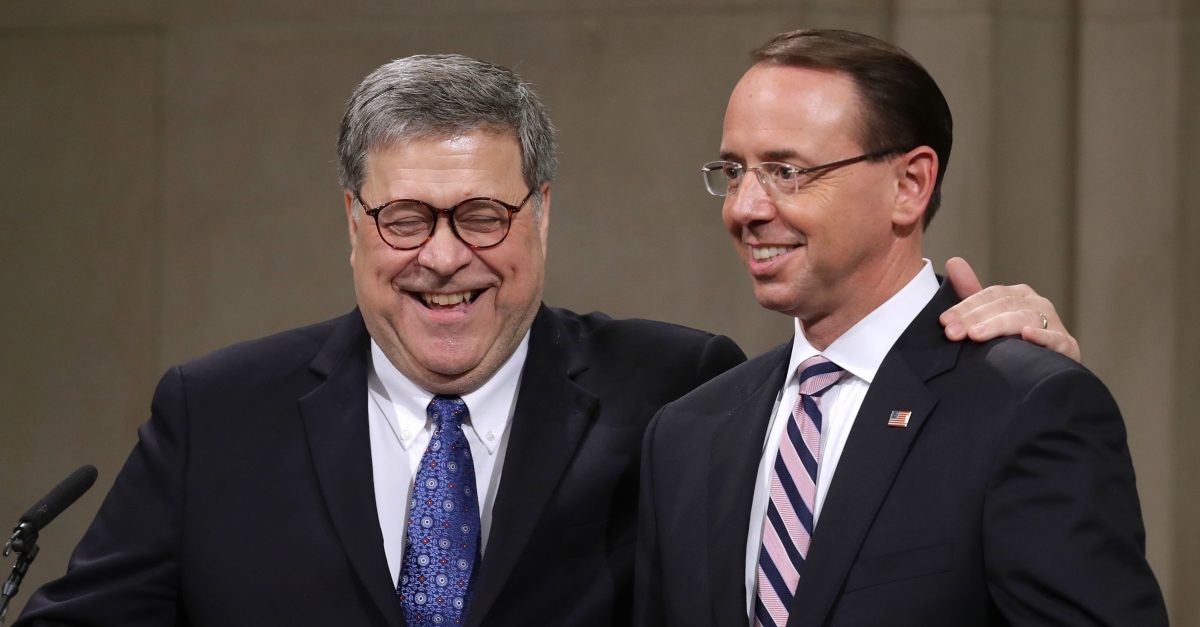Not It: Barr, Sessions, and Now Rosenstein All Deny Knowledge of Subpoena for House Dems’ Apple Data

Photo by Chip Somodevilla/Getty Images.
Last week, news broke that during former President Donald Trump’s administration, the Department of Justice had subpoenaed records from Apple for several Democratic members of the House Intelligence Committee, their staff, and family members — including at least one minor. Several key former DOJ officials have now denied any involvement.
The subpoena reportedly sought metadata related to 73 phone numbers and 36 email addresses, and was accompanied by a series gag orders that prohibited Apple from notifying the targets of the subpoenas that their records had been requested. Rep. Adam Schiff (D-CA) and Rep. Eric Swalwell (D-CA) have confirmed their records were among those targeted.
DOJ Inspector General Michael Horowitz announced that his office would be investigating the subpoena. One key question is who approved this request targeting some of the former president’s most prominent political critics, and so far, former Attorney General Jeff Sessions, former Attorney General Bill Barr, and former Deputy AG Rod Rosenstein have all denied having any knowledge of the subpoena.
Barr, Sessions and now Rosenstein say they were unaware of the subpoenas sent under their tenure for Democratic lawmakers’ records.
— Manu Raju (@mkraju) June 12, 2021
Sessions was AG at the time, but it makes sense he would have not been involved since he had been recused from anything related to the Russia probe. Rosenstein, as deputy AG at the time, would have had authority over the related leak investigation that was the reported reason for the subpoenas. However, a source “familiar with Rosenstein” told CNN on Saturday that he was unaware of this happening.
Barr took over as AG about a year after the Apple subpoena was issued and also denied any knowledge about it.
If Sessions and Rosenstein are both telling the truth, then that would imply that some of their subordinates at the DOJ were able to draft, approve, and issue a subpoena for private records of high-ranking House Democrats, their staff, and families, without their knowledge.
New: The Mediaite One-Sheet "Newsletter of Newsletters"
Your daily summary and analysis of what the many, many media newsletters are saying and reporting. Subscribe now!






Comments
↓ Scroll down for comments ↓